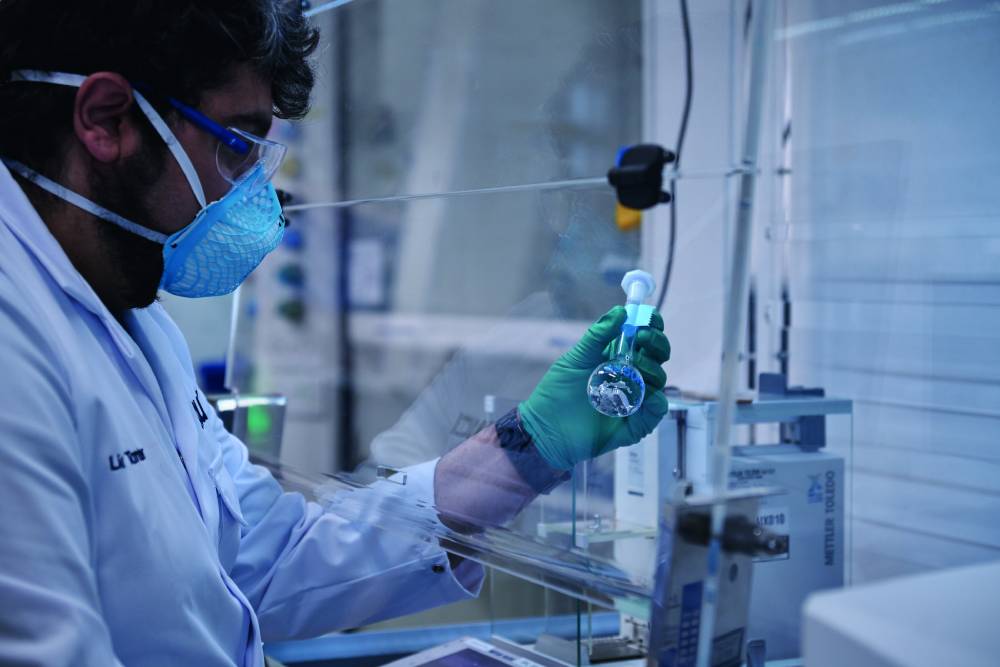
Asthma is an extremely common respiratory condition – it is estimated that more than 330 million people live with it globally and, as a result, it is a key health concern for the World Health Organisation (WHO). While we often do not know the cause of asthma, it can be triggered by allergens including pollutants. As a chronic disease with no cure, it requires lifelong management, most frequently through inhalers. Most of us will know someone who uses one.
These medical devices are life-saving – they help people avoid visits to emergency departments, hospitalisation and even premature death. Although best known for their use in asthma management, they are vital tools in many other lung conditions too, such as chronic obstructive pulmonary disease (COPD). This is the third-leading cause for death globally, particularly in lower-income countries, so it is vital that low-cost treatment is available.
There are different types of inhaler but the most popular are pressurised metered dose inhalers (pMDIs), colloquially known as “puffer” spray inhalers. They deliver a controlled, precise quantity of medicine propelled by a medical grade of liquefied gas directly into the lungs. They are cost-effective to produce, effective at disease management and popular with patients, so are an extremely valuable technology used all over the world.
Dry powder inhalers (DPIs) are another type of inhaler used frequently. These have a lower carbon footprint than current pMDIs but are not the top choice for patients. It is critical that both types are available so that individuals can choose the inhaler that best suits their needs while we innovate to find the most environmentally sustainable solutions possible.
Koura manufactures Zephex® 134a, currently the most widely used medical propellant for respiratory conditions globally. But over the past ten years we have been researching new propellants with significantly lower environmental impact.
We have undertaken a research and screening programme to shortlist new propellant options that are safe, effective and environmentally sound. This programme led us to develop Zephex® 152a as the leading candidate because it has been shown to reduce the carbon footprint of pMDIs by 90 per cent. A life cycle analysis also shows that it performs favourably across many other environmental factors.
The impact of transitioning pMDIs to Zephex® 152a has significant potential for the NHS’s environmental aspirations since inhalers account for about 4 per cent of the NHS’s total carbon footprint, which includes everything the organisation does, from transportation to hospital energy consumption.
It also puts pMDIs on a par with “greener” propellant-free inhalers such as DPIs, while still maintaining the patient satisfaction and cost-efficiency benefits of the pMDI platform. This effectively takes away environmental concerns from both patients and prescribers and allows medical professionals to prescribe based on clinical efficacy, cost and individual patient preference.
Maintaining the availability of pMDIs as an option for patients is vital for continuity of experience, which is extremely important for patient compliance – with the Zephex® 152a propellant, patients will essentially continue to use their existing inhaler exactly as they did before.
To ensure there is no compromise to patient safety, Zephex® 152a has been subject to a comprehensive six-year inhalation safety programme that is due to complete in early 2022.
Work is already under way to integrate this new technology into inhalers and deliver it to global markets. We have constructed a new pharmaceutical-grade manufacturing facility in Runcorn, Cheshire, next to our existing Zephex® 134a facility. Chiesi, one of Europe’s leading pharmaceutical companies, has announced that it expects to have Zephex® 152a inhaler products on the market in 2025.
Koura has a mission to “advance life around the world”, and to help achieve this goal you need ethically, economically and environmentally sustainable products. We want to play our part in providing safe, effective, user-friendly products like Zephex® 152a for people globally, which balance the impact on the world around us with patient choice, comfort and, ultimately, well-being.
Dr Stuart Corr is techno-commercial director at Koura. Read more about Zephex® 152a.
This article first appeared in our print supplement Healthcare: An uncertain future for the NHS, published on 22 October 2021.



